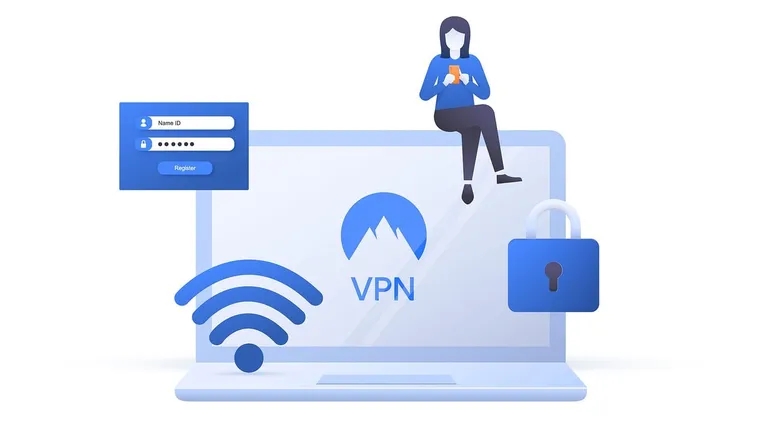How India VPN Can Enhance Cybersecurity Practices in the Image Industry
Secure image data with India VPN—encryption, AI threat detection & geo-restriction bypass to enhance cybersecurity in digital imaging.

Classic India VPN (virtual private network) and the evolving technological version can effectively enhance cybersecurity practices in the image industry, especially as businesses integrate digital transformation initiatives for high performance and long-term survival. With the increasing reliance on digital platforms for image storage, editing, and sharing, the need for robust cybersecurity measures has become more pressing than ever.
This article will explore why you need to implement cybersecurity measures and how India VPN can bolster cybersecurity practices in the image industry; this is vital to the survival of the sector, as Statista posits the global cost of cybercrime to rise to $13.82 trillion in 2028 from $9.22 trillion in 2024.
One of the primary reasons for leveraging India VPN for cybersecurity in the image industry is the need to secure sensitive data; this is essential as the industry evolves to AI-generated images. Images often contain valuable and confidential information you can’t afford to lose to cyber criminals, as loss or unauthorized access to such data can have serious repercussions.
By integrating VPN technology into their processes, image industry professionals can encrypt their internet connection, making it significantly more challenging for unauthorized parties to intercept and access sensitive image data. The India VPN split tunneling 2.0 feature enables image industry professionals to selectively choose the data packets they should send through the encrypted tunnel and the internet traffic that should access the internet directly, increasing internet speed, reducing bandwidth, and eliminating ISP throttling.
Furthermore, India VPN can help protect against potential cyber threats, like hacking, data breaches, and malware attacks, with the AI-powered threat detection mechanism analyzing patterns and behaviors in real time and swiftly identifying and neutralizing potential threats. The image industry is not immune to cybersecurity risks, and the consequences of a security breach can be devastating.
The multi-hop, cascading, or double VPN feature enables routing your internet traffic through several servers in different locations worldwide, creating a complex web for data transmission, eliminating web history tracking, and reducing the risk of unauthorized access and data manipulation. Disenabling unauthorized access is particularly important for image industry professionals who frequently transfer large files over the internet; this ensures VPNs can provide an added layer of security to mitigate the risk of data interception during file transfers.
In addition to securing data and mitigating cyber threats, India VPN can enhance safe and unrestricted access to online resources. Many image industry professionals rely on online platforms and cloud services for collaboration, research, and resource sharing, which geo-restriction of content by countries and regions deprives them of access.
Accessing these resources over unsecured networks can expose sensitive information to potential security breaches. By using a VPN, professionals in the image industry can access online platforms and cloud services with the assurance of data encryption and shielding online activities from hackers and other prying eyes.
However, India VPN can be instrumental in safeguarding against geo-restrictions and censorship through geo-locational obfuscation. Some regions and countries deem online resources and platforms offensive or illegal, rendering such content inaccessible or with limited access to image professionals due to geographic restrictions or government censorship.
Apart from bypassing geo-restrictions and government censorship, another feature the India VPN providers can integrate is the zero-knowledge-proof system; the feature allows authentication without revealing sensitive information and will affirm the identity of an image professional without compromising privacy, as user data protection becomes a priority, VPNs incorporating zero-knowledge-proof systems offer a mammoth guard against intrusive surveillance.
By utilizing a zero-knowledge-proof systems-enabled VPN, image professionals can bypass intrusive surveillance and access the resources they need without being impeded by geographical barriers or censorship, enabling them to work more efficiently and effectively and enhancing productivity.
It is important to note that while India VPN can significantly enhance cybersecurity in the image industry, it is not a standalone solution. Deploying a VPN should be part of a comprehensive cybersecurity strategy that includes cybersecurity measures such as regular software updates, strong password practices, and employee cybersecurity training.
Additionally, selecting a reputable VPN service provider after doing due diligence is crucial to ensure the reliability and effectiveness of the VPN solution. As the world primes up for the looming danger of quantum computers, Indian VPN providers must be proactive in ensuring the integration of post-quantum cryptography to withstand the computational power of quantum computers brute-forcing the breaking of AES-256 encryption within seconds or minutes, which was impossible for classical computers.
Conclusion
India VPN can be a valuable asset for enhancing cybersecurity in the image industry. By encrypting data, mitigating cyber threats, cascading internet traffic, enhancing zero-knowledge-proof systems, enabling AI-powered threat detection, promoting safe and unrestricted access to online resources, and bypassing geo-restrictions, VPNs can help safeguard sensitive image data and empower image industry professionals to work securely and efficiently in the digital landscape.
As the image industry continues to evolve in the digital age, the role of VPNs in bolstering cybersecurity practices will only become more vital and significant in long-term survival and relevance.
Last updated